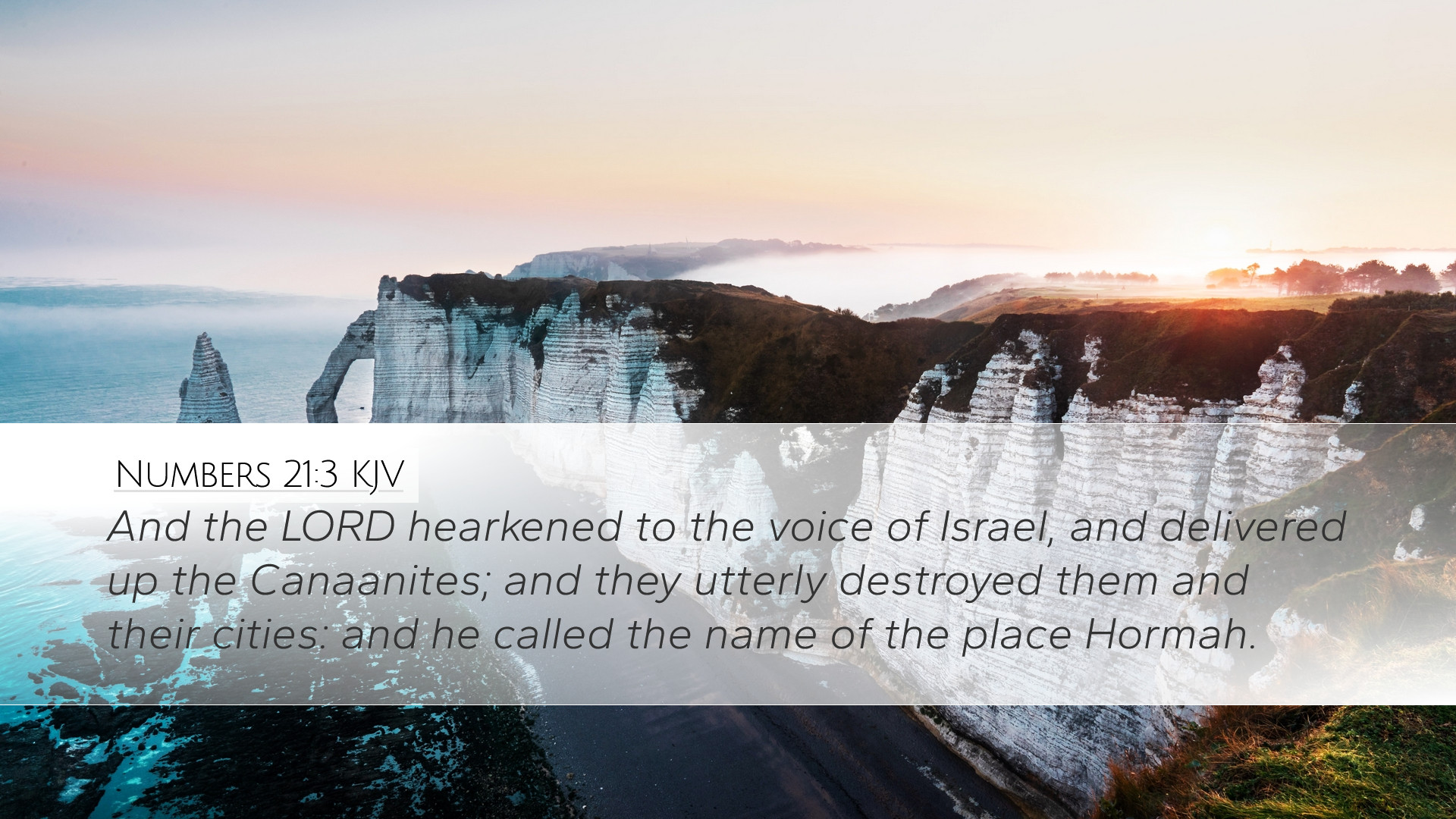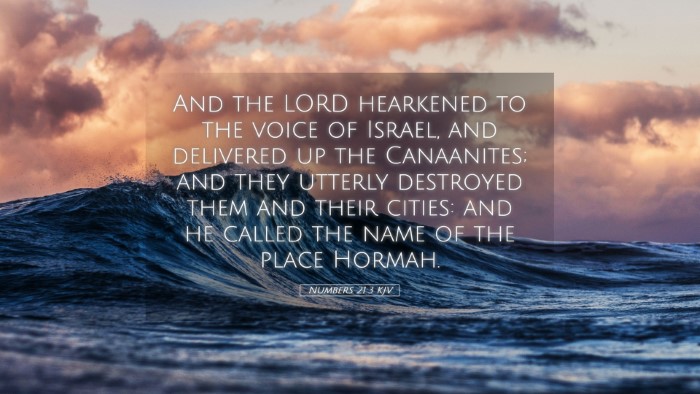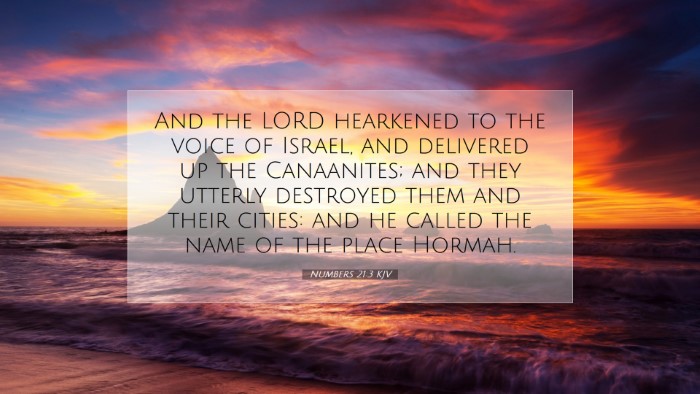Commentary on Numbers 21:3
Verse Context: Numbers 21:3 states, "And the Lord hearkened to the voice of Israel, and delivered up the Canaanites; and they utterly destroyed them and their cities: and he called the name of the place Hormah."
Introduction
This verse encapsulates a significant moment in the journey of the Israelites as they traverse the wilderness towards the Promised Land. It highlights the interplay of divine response to human petition and the unfolding of God's promises through warfare and conquest.
Insights from Major Commentators
Matthew Henry's Commentary
Matthew Henry emphasizes the importance of prayer and the earnest cry of the Israelites. He notes:
- Divine Response: Henry highlights that God listens to the pleas of His people. Their cry for help was met with divine action, showcasing God's covenant faithfulness.
- Destruction of the Canaanites: The utter destruction of the Canaanites displays the seriousness of God’s judgment upon nations that opposed His people. It was not merely a military victory but a demonstration of divine justice.
Albert Barnes' Notes on the Bible
Albert Barnes offers a historical and theological perspective on the text:
- Historical Context: Barnes notes that this event occurs in the later stages of the Israelites' wilderness journey. The previous battles allow readers to see God's providence in leading His chosen ones.
- Symbolism of Hormah: The name "Hormah" signifies "destruction." This renaming of the place indicates a memorial of victory intertwined with the fate of their enemies, reminding the Israelites of God’s might.
Adam Clarke's Commentary
Adam Clarke approaches the verse with a focus on moral and spiritual lessons:
- God's Faithfulness: Clarke points out that God's readiness to aid Israel is a testament to His faithfulness. The Israelites' cry is a cue to anyone who feels overwhelmed; in moments of distress, calling upon God brings about divine intervention.
- Lessons on Warfare: Clarke also discusses the ethical aspect of warfare in the Old Testament, emphasizing that such battles were warranted due to the idolatrous practices of the Canaanites against the commandments of God.
Theological Reflections
This verse not only addresses historical and contextual elements but also reflects profound theological truths relevant to contemporary faith:
- The Nature of God as Protector: The unyielding support of God in the face of opposition highlights His role as protector and liberator. This can be an encouragement to modern believers facing spiritual battles.
- The Importance of Obedience: The Israelites' victory was tied to their obedience and earnest prayers. The text suggests that divine favor is linked to faithfulness and integrity in following God's commands.
- The Concept of Judgment: The destruction of the Canaanites serves as a reminder of God's ultimate authority over nations and peoples. It raises questions about divine judgment and mercy within theological discourse.
Conclusion
Numbers 21:3 is not merely a historical account; it serves as a rich source for spiritual application and theological reflection. From the assurance of God's attentiveness to our cries to the stark realities of divine judgment, this verse invites pastors, students, theologians, and scholars to engage deeply with the nature of God and the unfolding of His redemptive plan.
Further Study Suggestions:
- Examine the relationship between prayer and divine intervention in the Old Testament.
- Explore the implications of the term "Hormah" in subsequent biblical narratives.
- Reflect on the concept of divine judgment within a contemporary framework of grace and mercy.


